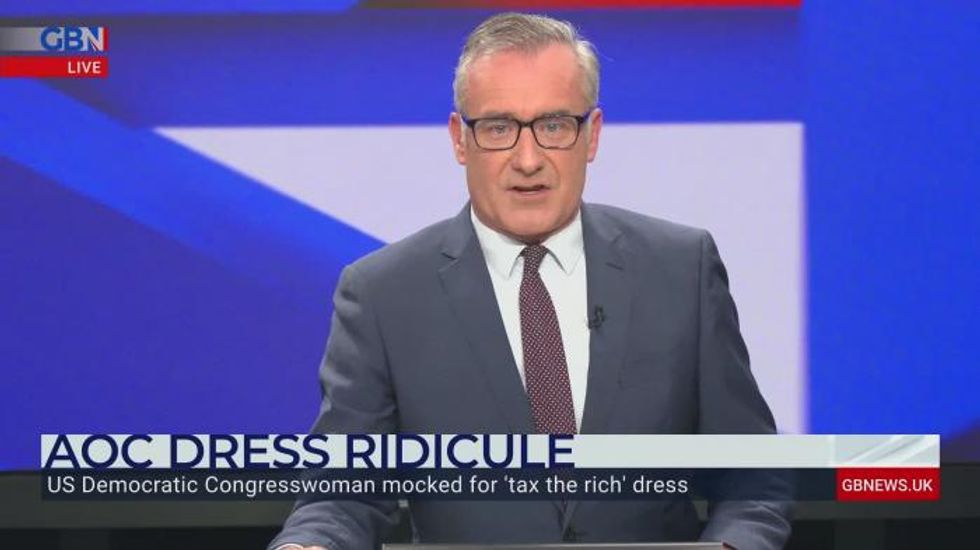Don't Miss
Most Read
Trending on GB News
Beijing has just banned the construction of any building higher than 500 metres. It doesn’t want cities competing with each other with ever-higher sky-scrapers.
It’s typical of a new puritanical mood in China, a country we know too little about – certainly when set against our obsession with America - but which increasingly makes the weather for all of us – economically, diplomatically, and increasingly, culturally.
Just think Tik-Tok.
Why does banning skyscrapers tell us anything of importance? Because it’s part of a process. A joyless chokehold on freedom that’s been described as China’s Second Cultural Revolution.
Ostensibly, banning skyscrapers is about curbing unedifying competition between rival city mayors. But it’s also sending out a message that vanity projects will not be tolerated. That showing off, is un-Chinese.
Which is why China’s Second Cultural Revolution is targeting youth and celebrity culture. Film and pop stars are now falling under suspicion for the power they wield over young minds. When it comes to sharing the limelight, the Chinese Communist Party, is like a sulky teenager.
So its Central Committee for Discipline Inspection has slammed celebrities who bring, as they put it, “chaos to the internet”.
Virtual fan communities are increasingly monitored. Individual stars are targeted. The state can always find a way. An actress given a huge unwarranted tax bill, male presenters taken off-air for being “too effeminate”, whatever that means.
China’s leader Xi Jinping has previously said that culture must be there to serve the people. But what he really means is that it must be there to serve the Party. A totalitarian state can only tolerate one cult of personality – and that’s Xi Jinping’s. These recent edicts have to be seen in the context of pronouncements this summer about Xi Jinping Thought. It’s an ideology – based on one man’s thinking – being taught to tens of millions of Chinese kids, from primary school to university.
Part of the challenge for us in the West, is to see this for what it is, and debunk it. Because there are aspects of China’s Second Cultural Revolution which many people, and I include myself in that, will find attractive.
For instance, the communist party has banned anyone under 18 from playing video games in the week, and will only allow children to play them for a maximum of three hours at the weekend. And there will be others, again I include myself, who wouldn’t miss a culture that was a bit less beholden to shallow celebrities with room temperature IQs.
A little less Love Island, a bit more Kenneth Clarke.
But although it’s tempting to think we’d better off being more earnest, in a free society, that’s for individuals, not the state, to decide. But here’s the thing. China doesn’t care what I think, or what Britain thinks for that matter.
Ours is a country of the past, fading on the world stage, collapsing under the weight of our internal contradictions. No, China’s Second Cultural Revolution is primarily for the Chinese themselves, especially that dwindling cohort of young people; products of the country’s wicked one-child policy. Beijing is worried it doesn’t have enough young people, and wants to make sure those it has can be relied upon.
But China’s Second Cultural Revolution also has a second audience. And this one’s beyond China’s borders, in the developing world. The countries benefiting from its Belt and Road initiative in Africa, for instance. These are often socially conservative societies who see the West as morally bankrupt and hopelessly effete.
During the Cold War, the old Soviet Union had what were called client states, who looked to it for trade and ideological leadership. Now these new client states look to China for the same, but with a twist. Client states in Africa and elsewhere are still interested in the money.
But the other bit, the ideology, that’s different. Where the Soviets peddled international socialism, the Chinese are offering their version of communism; unsmiling, controlling, uncompromising. A model for arranging society in which one man decides buildings are too tall or TV presenters are too effeminate.
The world according to Xi Jinping. Get used to it.











